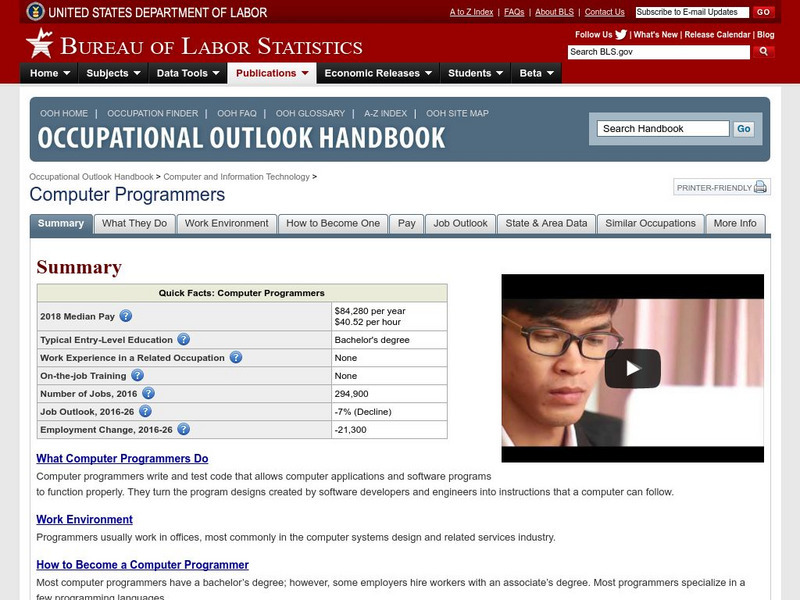Hi, what do you want to do?
Cincinnati Library
Computers for Beginner
The kids in your class are probably experts at navigating the computer, but do they know the difference between hardware and software? Teach computer skills to any level of computer user with a helpful reference sheet. It...
Minnesota Literacy Council
Adult Computer and Employment Skills
Whether you are an experienced computer user or a newcomer to technology, a packet full of computer vocabulary, tips, and guided practice is sure to enhance your technological knowledge. Learners can hone their word processing skills and...
T. Smith Publishing
Computer Basics for Kids Worksheet
This informational reading instructional activity can be used in your literacy or computer class. Students learn the basic components of computers then test their knowledge with multiple choice and fill-in-the-blank questions.
BBC
Getting Online One Click at a Time
The Internet is a vast and fascinating place to be, but you have to know how to get there first! Use a helpful guide to become computer savvy in no time. It covers computer basics such as keyboarding and hardware, and goes into e-mail,...
TryEngineering
Computing in the Cloud
What and where is "the cloud"? The lesson teaches scholars about the history of cloud computing and about its current uses. It also teaches how to install a multiple guest OS in a host OS and how to use cloud computing services.
Code.org
HTTP and Abstraction on the Internet
Introduce your class to the layers of abstraction of the Internet with a lesson plan on the HTTP protocol. Pupils review previous lessons on levels of the Internet, then investigate new high levels by examining the HTTP traffic...
TryEngineering
Circuits and Boolean Expressions
Teach basic logic using Boolean operators. Young computer scientists learn about the operators NOT, AND, and OR, and how they can be expressed using Boolean notation, logic gates, or truth tables. Along the way, they learn about half...
TryEngineering
Solving a Simple Maze
Solve a maze ... from a robot's point of view. In the lesson, your scholars build a small, simple maze from cardboard and then find a route from the start point to the finish point. They write an algorithmic process that a robot could...
Technical Sketching
Introduction — Surfaces and Edges
How different can 3-D and 2-D really be? An engineering resource provides an explanation about the importance of two-dimensional technical drawings. Several samples show how to create multi-view drawings from pictorials and...
TryEngineering
Boolean Algebra is Elementary
See how Boolean algebra relates to video games with a lesson that teaches young scholars how to use Boolean algebra to create rules for a virtual world. They test the rule base for consistency in groups.
TryEngineering
Fun with Sorting
Who knew sorting could be so much fun? Scholars participate in a sorting activity where they develop questions to place a list of numbers in order. They consider how these questions can be used as an algorithm.
Teach Engineering
Backyard Weather Station
Challenge young meteorologists to apply their knowledge of weather to build their own weather stations. The resource provides the directions to build a weather station that contains a wind vane, barometer, thermometer, and rain...
US Department of Labor
Bureau of Labor Statistics: Computer Programmers
This site has basic information about careers for computer programmers, including the nature of the work, working conditions, employment, training, job outlook, earnings and related occupations. Multimedia is mentioned in the training...
Computer Hope
Computer Hope: Information About Computer Dvd Drives
Informative site detailing the use of DVD drives. Content includes a focus on the basics of DVDs, DVD regional codes, DVD-RAM, DVD-RW, technical support and more.
University of South Florida
Florida Center for Instructional Technology: What Is Networking Hardware?
Clickable network map shows information on the types and uses of networking hardware. Very basic introduction.
Massachusetts Institute of Technology
Mit: Inventor of the Week: James T. Russell
This site provides a biography of James T. Russell, inventor of the compact disk, and the basic ideas behind the technology.




















